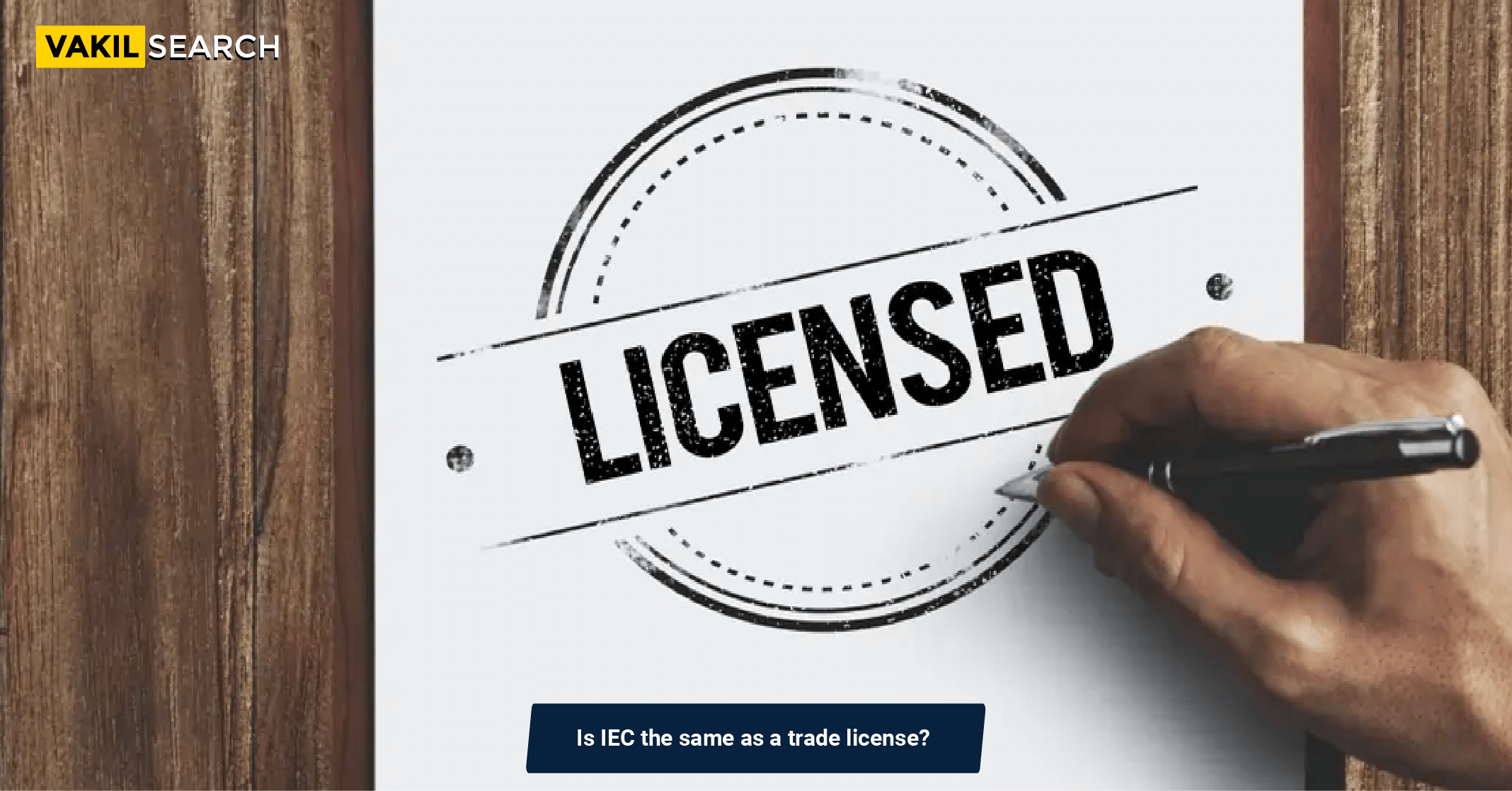Understand the distinctions between Import Export Code (IEC) and trade licenses, vital for global trade and local business compliance. Explore with Vakilsearch.
In the realm of international trade, businesses often encounter a web of regulatory requirements and licenses, two of which are Import Export Code (IEC) and a trade license. Both are crucial for enterprises involved in import and export activities, but they serve distinct purposes and possess unique scopes. This article aims to unravel the differences between an IEC and a trade license, elucidating their respective purposes, scopes, issuance procedures, and regulatory prerequisites. Understanding these nuances is essential for businesses navigating the global trade landscape.
Understanding the Basics
Import Export Code (IEC)
Import Export Code, abbreviated as IEC, is a unique ten-digit code issued by the Directorate General of Foreign Trade (DGFT), under the Ministry of Commerce and Industry, Government of India. The primary purpose of an IEC is to enable businesses to engage in cross-border trade, facilitating the import and export of goods and services from and to India. It is a mandatory requirement for businesses or individuals partaking in international trade operations.
Trade License
On the other hand, a trade license is a permit granted by the local municipal authority or a relevant government body that authorises a business to carry out specific trade activities within a defined locality. This license ensures that the business operates in compliance with the rules and regulations set by the local governing bodies.
Distinguishing Factors
To understand the differences between an IEC and a trade license, let’s delve into various aspects that set them apart.
Regulatory Domain
IEC: The regulatory domain of an IEC falls under the central government, specifically the DGFT, which oversees foreign trade policies and regulations.
Trade License: The regulatory domain of a trade license is local or municipal, governed by the respective local authorities.
Purpose and Scope
IEC: The primary purpose of an IEC is to facilitate international trade by enabling businesses to import and export goods and services. It is a mandatory requirement for engaging in cross-border transactions.
Trade License: The purpose of a trade license is to regulate and govern local businesses, ensuring they comply with the specified rules and regulations. It grants permission to operate within a specific area or locality.
Issuance Procedure
IEC: The IEC is obtained by submitting the requisite application to the DGFT. The application is then processed, and upon approval, the unique ten-digit IEC is issued.
Trade License: To obtain a trade license, a business must apply to the local municipal authority or the relevant government body. The application is then reviewed, and upon meeting all necessary criteria, the trade license is issued.
Necessity for Businesses
IEC: Any business or individual involved in import or export activities is required to obtain an IEC. It is crucial for customs clearance and foreign trade transactions.
Trade License: Any business intending to operate within a specific locality, engaging in trade, or providing certain services must acquire a trade license.
When are they Necessary?
Understanding the circumstances in which these identifiers are necessary is vital for businesses engaging in international trade or local operations.
IEC is Necessary:
- For Importing or Exporting Goods: Any business looking to engage in the import or export of goods and services to and from India needs an IEC.
- Customs Clearance: An IEC is essential for customs clearance at the time of importing or exporting goods.
Trade License is Necessary:
- Local Business Operations: Any business operating within a specific locality, providing services or engaging in trade, requires a trade license.
- Compliance with Local Laws: To ensure compliance with local laws and regulations, obtaining a trade license is necessary.
Conclusion
In conclusion, while both an Import Export Code (IEC) and a trade license are essential for businesses, they serve distinct purposes and operate under different regulatory domains. The IEC is crucial for businesses engaged in international trade, facilitating imports and exports, and ensuring compliance with foreign trade policies. On the other hand, a trade license is essential for local businesses, allowing them to operate within a specific locality while complying with local regulations. Understanding the nuances of these identifiers is crucial for businesses to navigate the complexities of global trade and local operations effectively. For expert guidance and assistance in obtaining and understanding these vital business identifiers, reach out to Vakilsearch.


